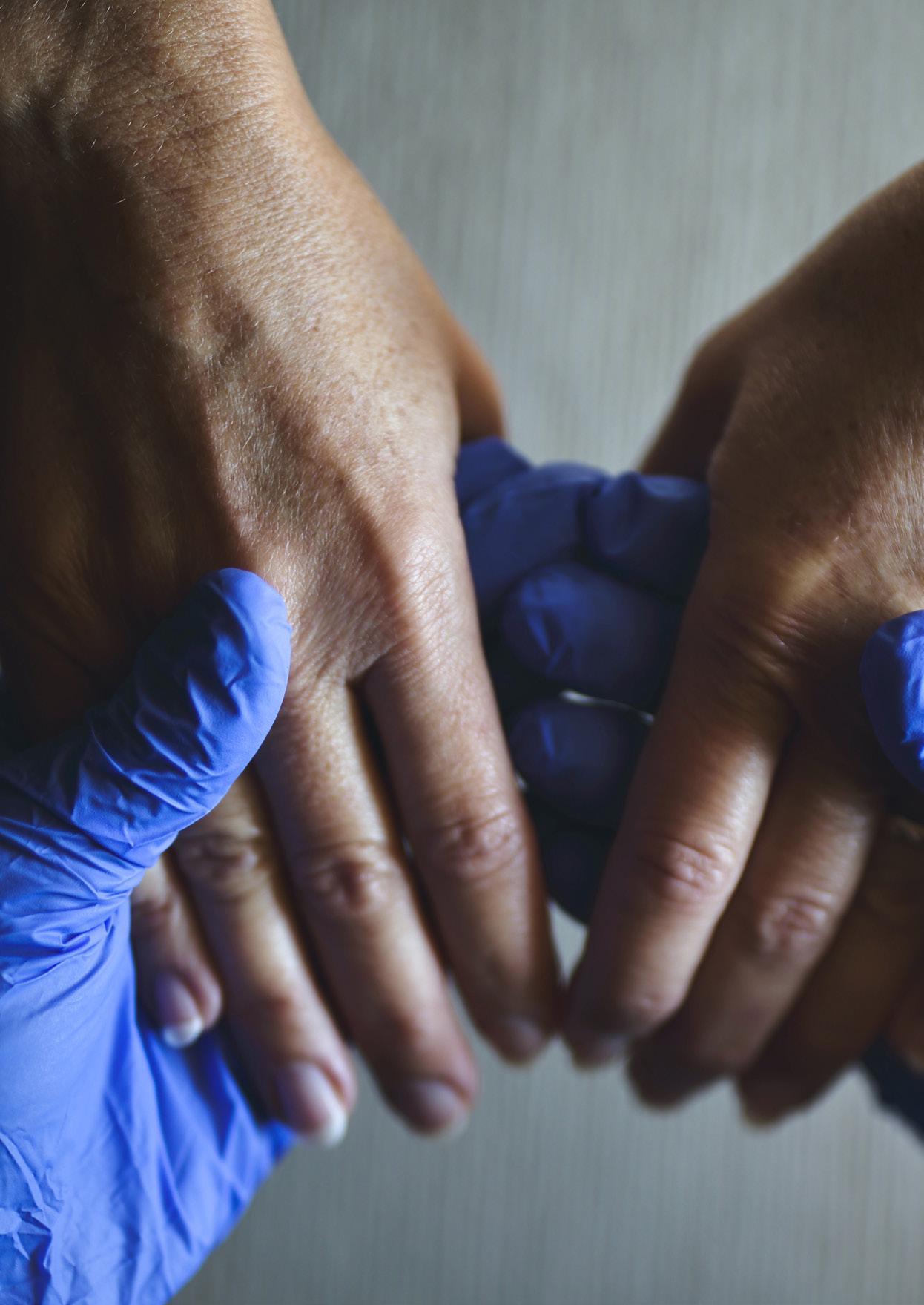
3 minute read
SOCIAL WORK ON THE FRONTLINE
Nearly 12 months on from the UK’s first national lockdown, care home workers Nicole, Sally, and Lindsay reflect on working through a pandemic.

Nicole Mercer
“There were days I’d finish my shift, get into my car, and cry,” says Nicole Mercer, Care Team Manager at Barnes Lodge in Kent.
“The job changed completely overnight, and it was a scary time.
“At first, wearing the masks for 12 hours was very strange; now it feels like a second skin.”
Nicole explains: “My colleagues and I were all in the same position, and it meant a lot that we could share our fears and worries.
“Families of our residents took care of us - sending biscuits and hand creams.”
Nicole had her vaccine at the end of January, and the care home residents the following week.
“Now we’re open to visitors again.
“We got a grant from infection control to have a visiting pod built.
“It’s like a log cabin, heated, with lighting and double glazing, and partitions down the middle, so residents can sit on one side, and families on the other.
“This last lockdown has, in my opinion, been the hardest one.
“We’re all exhausted, but we’ve worked as a team, and we’ve made it through an unbelievably tough 12 months.”
As the country went into its first national lockdown, Sally Gregory made the quick decision to leave her 10 and 13-year-old children with family, and move into Guy’s Court Care Home, in Lancashire, where she had become Home Manager just weeks earlier.
“It was a time of extreme uncertainty, and my residents didn’t fully understand what it all meant for them,” says Sally, who was joined by a core team of seven staff.
“I wanted to make their bubble safe.”
Sally focused on nurturing relationships with her residents, and her new team, and helped with laundry, cooking, and cleaning.
As part of a care partnership with other local providers and the CCG, and as one of the first homes in the area to experience COVID-19 first-hand, Sally fed back vital information so others could learn from her experience.
She says: “I was pleased to return home, but if I had to do it again, I would in a heartbeat.
“We were delighted to receive the first Pfizer jabs as part of the vaccine rollout to staff and residents. It was such a momentous occasion for everyone.”

Lindsay Hood
Lindsay Hood admits she thought she was going to die after contracting Covid during the first outbreak.
The mum-of-two, a Care Home Administration Manager at Surbiton Home in Surrey, said that at its worst, she was afraid to sleep for fear of not waking up again. Her condition deteriorated at home for three weeks before she was admitted to hospital, where tests revealed she had dangerously low oxygen saturation levels, a bacterial infection, and was borderline sepsis.
“It was a long and frustrating recovery.
“I had mixed emotions stepping back into the Home. I’d missed the residents and my colleagues, but I was terrified. In those first weeks, if too many people came into my office, I panicked. I didn’t want people close to me, and could feel myself spiralling.”
Lindsay was referred for counselling, and was told she had PTSD - a natural psychological reaction to nearly losing her life.
“I don’t want anyone to go through what my family went through. They didn’t know if they would see me again.
“The more people that are vaccinated, the less risk there is.”










